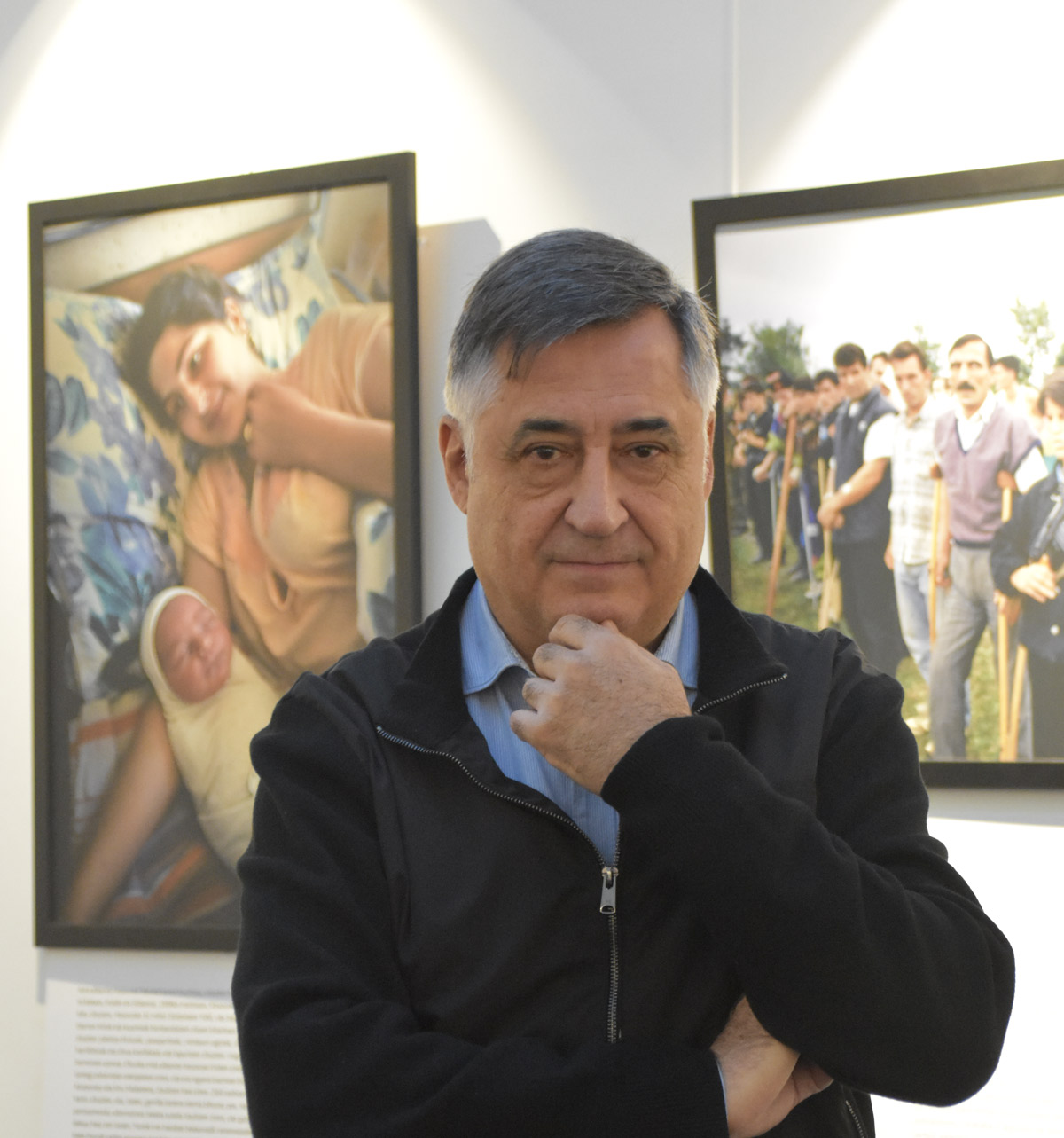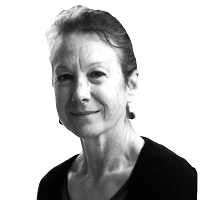"We collect the experiences of women living in conflict situations"
- Colombia, Kurdistan, Greece, India… Irantzu Pastor (1985, Lesaka) has had the opportunity to meet many corners of the world, both for pleasure and for work. He's a photographer. Every trip has marked milestones for him. “You never come back the same way,” he often told us during the interview. What he loves the most is to pick up glances. At the moment, the Municipal Police is collecting all kinds of violence against women. He has started his work abroad, and in these times of pandemic, he is trying to analyze the reality of his home, of Euskal Herria. Once the work is done, the idea is to put it together in a book.

Together with Igone Mariezkurrena, you have in your hands the project to collect violence against women.
Yes, it is true. Igone is a journalist and an anthropologist, and I'm a photographer. In 2018, we started to reflect on the subject and immediately began to work with great enthusiasm. That year we took the backpack and went to Palestine. After two weeks, we started shaping the project. What we saw, lived and met there accompanied us. In 2019, we were in India. And this year, before the pandemic broke out, we were in the United States, in South Dakota, with the natives.
We gather the experiences of women in conflict situations where women are still the most oppressed and the most subjugated. It is known that many of the oppressions that women suffer are invisible and that if they do not emerge they will remain so for centuries. There is a lot of news in the media, especially about the events leading to physical violence. We, on the other hand, want to make known the underlying network that does not appear through the project. Many cultures continue to justify violence against women. Direct violence sometimes and indirect violence sometimes.
How do you get an image to reflect the oppression a woman suffers?
In this case it is very difficult. Especially when we talk about invisible types of violence. So we combined the photo with the text so that everything is well explained.
From woman to woman, complicity emerges. The magic that is created is very nice. At first we were pretty scared. In fact, we work from woman to woman, but in this work we work from a privileged position, as white and Western women. However, there is something that unites us and we work like that.

Examples of the work done so far?
The trip to India was very hard. Imagine, seen from the outside, it's said to be hard, but after walking the streets, it's harder. Every day we saw dozens of harsh and raw realities, but I was particularly marked by prostitution. We were in Bangkok, historically known as the prostitution center, where there's a lot of human trafficking. We met a woman. In his day he was engaged in prostitution, but today he is on the other side of the street, helping prostitutes. We entered a brothel with him. What we saw is unimaginable. Living like this is really hard.
In addition, we had the opportunity to be with some women farmers. They are suffering and suffering from the consequences of climate change and the use of chemicals. The earth is drying up. Many men cannot endure the situation, commit suicide and the woman stays alone instead of taking it forward. And it's already known that a woman can hardly commit suicide by leaving only her other children. That's violence, invisible, and we're doing a job to make it visible.
Is a woman who suffers this kind of violence able to look in front of the camera?
Yes, and I've also been very astonished by that. To reach these places we contact several NGOs that know the local reality well. They gave us little hope of taking pictures. But so far, at least, we've always been able to take pictures. It creates magic. Women have to tell. For a moment, they look at the camera and reflect at a glance all the dignity of the world. They give their face.
You have not completed the project, you have been fully caught up in the health crisis. At what point are you?
We want to go to Africa as soon as possible. Genital mutilation and other causes. We know it is going to be difficult for us, but we want to deal with it on all continents. It is true that there are more and more African women refugees among us and that we can work with them. But as far as possible, it's about going there.
Violence against women is not just a foreign issue, right?
No, of course. We don't need to go abroad to live, see and experience violence against women. Unfortunately, also at home. We've had time to think about lockdown; we've been able to do some distance trips, and now we're looking home. At home, it's always harder. A professor once told me that the surgeon never operates with his relative. Well, we're on that now.
What kind of support do you have in your head?
A book of photos and testimonials. Easy to consume, to look calmly, calmly. In the meantime, we have made publications in various Basque media. We would also like to make an exposition of photos and testimonies of these women. But the ultimate goal is the book.
work together Irantzu and I. The camera has always come to the interviews with the camera in hand. One day I set out to be the interviewee, self-portraits of myself, and I immediately received my assent. “Self-portrait isn’t that easy, but I’ll do it.” He works half time in photography in different media and the other half as a tourism technician in the municipalities of Baztan and Bidasoa. “That’s fine, I get the balance I need.” You can enjoy your jobs on the portal www.irantzupastor.com or on the @irantzupastor instagram account.
Vietnam, February 7, 1965. The U.S. Air Force first used napalma against the civilian population. It was not the first time that gelatinous gasoline was used. It began to be launched with bombs during World War II and, in Vietnam itself, it was used during the Indochina War in... [+]
It's not a new thing, the world that Homo omen sapiens explodes is getting smaller and smaller. Four holiday and even Scandinavia, thanks to kerosene without taxes. Otherwise, the good Basque will choose exotic places for his holiday. In this magazine, in March, Pello Zubiria... [+]
























